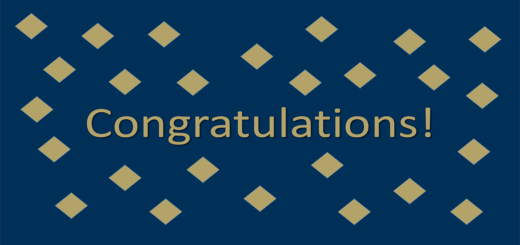Mentoring Always Matters
It has been demonstrated throughout the ages that mentors are valuable assets to their protégés, who welcome the opportunity to dine at their mentor’s table, feasting on the wisdom and knowledge of one with years of accumulated experience within an area that the protégé can only dream of succeeding. Where would Plato have been without Socrates? Where would Aristotle have been without Plato? Joshua without Moses? Oprah without Maya Angelou? Tammy without Washington, Blockett, Wilson, Taylor, Johnson, Jones, Trice, Roberts, Lucas, Woodard…Adebiyi? I believe it goes without saying that powerful mentor/mentee relationships can alter the course of not only those directly involved but also the world as a whole. No matter how young or seasoned, the benefit of both professional and personal mentors is priceless. Who are your mentors? Are they positioning you to change the world?
Transitioning from student to professional can be exciting yet daunting. For months you were laser-focused on getting the perfect job. You researched ideal employers, submitted application packets, answered innumerable interview questions, negotiated a competitive salary, and finally accepted a position. Perfect or not, you arrive for the first day on the job. Sitting in your bare but clean office, you think, “Now what?” Well, besides taking care of the mandatory human resources tasks and meeting your new colleagues, it is time for you to revisit that frequently asked interview question, “Where do you see yourself in 5 years?” Even if you have somewhat of a clue, this is where a professional mentor can be a valuable resource to you.
A professional mentor can help you to better articulate your career goals (month by month, quarter by quarter, year by year) and to identify resources that will enable you to successfully reach those goals. A mentor will also encourage career development through participation in professional organizations and continuing education opportunities. A supportive mentor will share his/her on-the-job experiences and connect you with those in his/her network from whom you can learn about other professional opportunities. While it is your responsibility to initiate the relationship, once formed, both parties can learn and grow professionally from the experience.
Much like when you were job hunting, it is important to find mentors who are the right fit. Look for those who will challenge you to be your best…better than your best. Begin your search for mentors within a tight radius (direct supervisor, experienced colleague, etc.) and continuously expand your search radius to include mentors from another unit at your place of employment, a local professional group, an international society, someone who works for a competitor. Wherever situated within your network, each mentor can provide you with a unique perspective about your field and the courage to make bold career moves.
While the line can be blurred between a professional and a personal mentor, it is possible to have two discrete sets of supporters. A personal mentor can serve as an objective sounding board for those things in your life that affect your social, emotional, and attitudinal development, specifically as they relate to your job. On the job or off the job, there will always be factors in your life that challenge your ability to perform at your best. Oftentimes, these varied outside players can cause us to lose focus on our career and life goals. Hence, it is important to develop a network of supporters who can supply that emotional boost when you need it. This group of supporters exists as your family, closest friends, church members, or even a therapist. However you categorize them, they are the ones who get to see and support the real you…the vulnerable you. It is important that you have a support group such as this to whom you can talk about problems at work (real or perceived), self-doubt, anxiety, or depression. They are the confidantes you need and who will rally to get you back on your feet so that you can be your most productive in your private life and on the job as well.
Mentoring always matters – professionally and personally. The historical record is filled with examples of successful mentor/mentee relationships. That record is further supported by the familiar saying that two heads are better than one. A wealth of knowledge can be gleaned from one (or more) who has walked along the path you are going. It is true that iron sharpens iron; hence, two like-minded individuals will sharpen each other and will be better positioned to succeed in their chosen careers. Who mentors you? Who are you mentoring?




